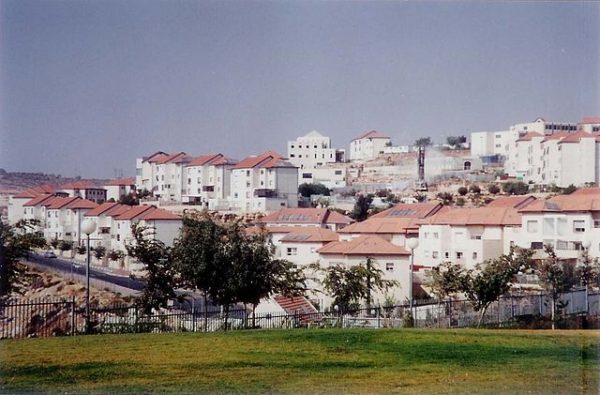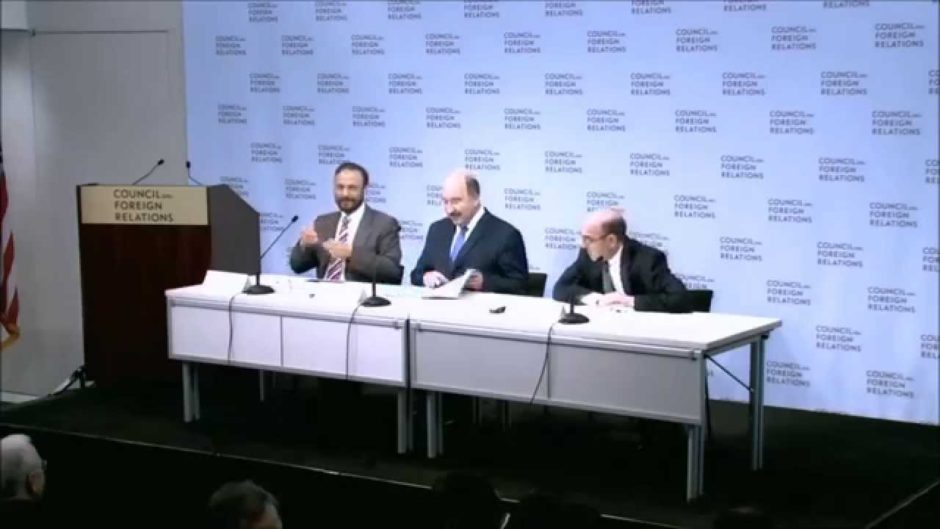What will it take to jolt Israel into the realization that peace with the Arab world cannot be achieved unless the gnawing Palestinian problem is satisfactorily resolved?
This important point was underscored by Anwar Eshki, an emissary from Saudi Arabia who visited Jerusalem last week. A retired general and advisor to the Saudi government, he told his Israeli interlocutors, “There will be no peace with Arab countries before there is peace with the Palestinians.”
Precisely.
He also pointed out that a two-state solution would rob Iran — Saudi Arabia’s rival and Israel’s enemy — of the ability to exploit the Arab-Israeli dispute for its own ends.
Exactly.
Eshki landed in Israel with a delegation of businessmen and academics seeking to promote a Saudi peace plan that the Arab League has adopted.

First presented in 2002 and since then slightly amended to induce Israel to the negotiating table, it requires a full Israeli withdrawal from the occupied territories, including East Jerusalem, and a “just” settlement of the Palestinian refugee problem in exchange for a normalization of relations with the 57 member states of the Arab League.
One Israeli government after another in the past 14 years has greeted the initiative with a heavy dose of skepticism, praising its promise of normalization but rejecting its demands for a complete pullout from lands conquered during the Six Day War and for a solution to the plight of the Palestinian refugees.
Recently, Israeli Prime Minister Benjamin Netanyahu said that while the Arab League proposal “contains positive elements that could help revive constructive negotiations with the Palestinians,” it must be further modified to suit Israel’s security interests.
During his remarkable visit to Israel — a country Saudi Arabia has not recognized and is still technically at war with — Eshki had meetings with Dore Gold, the director-general of the Foreign Ministry, and General Yoav Mordechai, the coordinator of Government Activities in the Territories. In addition, Eshki went to the West Bank to meet officials from Palestinian Authority President Mahmoud Abbas on down.
About a month before conferring with Eshki in Jerusalem, Gold laid out Israel’s new diplomatic strategy. Endorsed by Netanyahu, it places the emphasis on an Israeli rapprochement with Arab states before the Palestinian question is addressed.

As Gold said in an interview with an Israeli journalist in June, “Thirty years ago, everyone said, solve the Palestinian issue and you’ll have peace with the Arab world. It’s the exact opposite. It’s a different order we have to create.”
Gold’s approach, as Eshki indicated, is misguided. If the Israeli government genuinely believes that conservative Sunni Arab countries will come to terms with Israel before the Palestinian issue is settled, it is laboring under a grand illusion.
True, Egypt and Jordan signed peace treaties with Israel in 1979 and 1994 without resolving the issue of Palestinian statehood. But Egypt was motivated by a desire to win back the Sinai peninsula, reopen the Suez Canal and renew ties with the United States. Jordan, a nation with a large Palestinian population, was buoyed by the optimism that the Olso peace process would result in the establishment of a sovereign Palestinian state.
Today, Sunni Arab states and Israel share two major strategic objectives — containing Iran, a Shiite power, and defeating Islamic State, a jihadist organization that has entrenched itself in Iraq, Syria and Libya.
Despite their common interests with Israel, Arab rulers will not risk the wrath of their subjects by downplaying the Palestinian issue, which has been smouldering since Israel’s creation in 1948.
As Eshki pointedly said in Jerusalem, the Palestinian problem must be fixed before ties with Israel can be normalized.
In this spirit, Israel should try much harder to accommodate itself to the Arab League peace plan. It’s surely in Israel’s long-term interests to integrate itself into the region and finally be at peace with its Arab neighbors. By doing so, Israel would take a bold step to assure its future as a Jewish democratic state.
Israel, in this connection, would be wise to accept the recommendations of a report issued by the Middle East Quartet on July 1.

Calling on Israel to stop expanding its network of settlements in the West Bank, the report warned the Israeli government that its policy “entrenches a one-state reality of perpetual occupation and conflict that is incompatible with realizing the national aspirations” of Israelis and Palestinians.
The United States, Israel’s chief ally, is critical of recent Israeli actions in the West Bank as well.
Responding to Israel’s recent decision to issue permits to build 800 housing units in Ma’ale Adumim, a settlement in the West Bank, and in the East Jerusalem neighborhoods of Ramot and Har Homa, State Department spokesman John Kirby on July 5 said that “land seizures” and “settlement expansions” are “fundamentally undermining the prospects for a two-state solution.”
Netanyahu claims that Israeli construction in the West Bank is not an obstacle to peace, but he is deluding himself and sowing the seeds of further acrimony and bloodshed.
As Eshki intimated, Israel should get on with the task of making peace with the Palestinians rather than expanding settlements.
